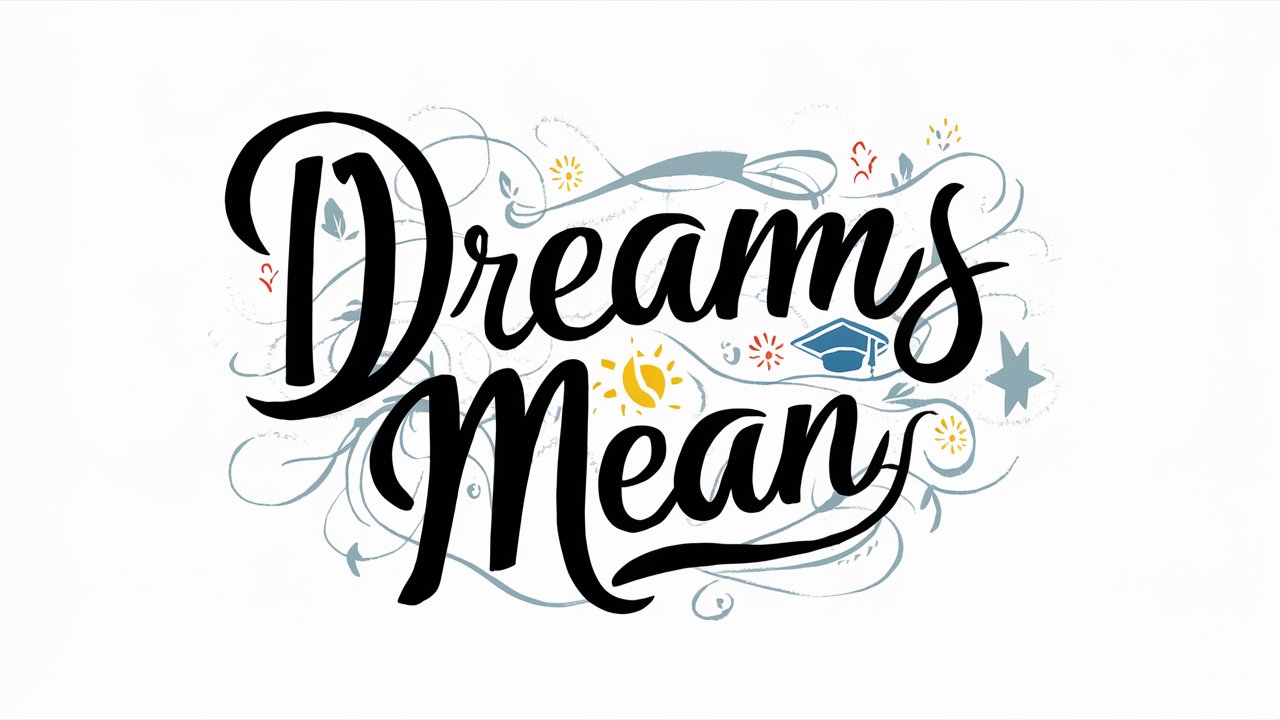In the vast tapestry of human experience, few elements weave as tightly through the fabric of societies as dreams do in African cultures. From an ancient past to the nuances of contemporary life, the place and importance of dreams in African cultures holds a prominent and revered position. Exploring the role of dreams in African traditions, one quickly realizes they serve far beyond mere nighttime imaginings. Dreams act as essential conduits, bridging the realms of the living and the ancestral, imbuing daily life with spiritual significance. The significance of dreams in African societies manifests in various aspects, from guiding decision-making processes to inspiring artistic expressions. Moreover, the impact of dreams on African cultural practices can be seen in their influence on music, art, and folklore, as well as their enduring presence despite the winds of modernization. Join us as we embark on an enlightening journey to uncover the rich tapestry of how dreams shape and inspire African traditions and cultural identity.
Understanding African Dream Traditions
When delving into The Place and Importance of Dreams in African Cultures, it’s crucial to first understand the backdrop of African dream traditions. These traditions weave a rich tapestry of heritage and wisdom, often reflecting the collective consciousness of entire communities. The Role of dreams in African traditions spans various aspects, including:
Key Elements of African Dream Traditions
| Aspect | Description |
|---|---|
| Spiritual Connection | Dreams are seen as direct communication channels with the spiritual realm. |
| Guidance and Foresight | Often, dreams provide guidance for both personal and communal decisions. |
| Cultural Education | They serve as vessels for imparting cultural norms, values, and ethics. |
| Healing Practices | Dreams are integral to traditional healing methods and holistic well-being. |
| Symbolism | Specific symbols and motifs in dreams carry profound meanings and interpretations. |
Intricacies of African Dream Traditions
Understanding these traditions also means recognizing the Significance of dreams in African societies. Diverse African cultures, from the Yoruba of Nigeria to the Zulu of South Africa, have unique yet intersecting perspectives on dreams:
- Spiritual Significance: Dreams often serve as a bridge to the spiritual world, facilitating communication with ancestors and deities.
- Narrative and Myth: Many myths and folklore stem from significant dream interpretations, enriching cultural narratives.
- Community Roles: Certain individuals, such as shamans or elders, are often designated as interpreters of dreams, holding esteemed positions within their communities.
Common Dream Symbols in African Cultures
- Snakes: Can symbolize transformation and healing.
- Water: Often associated with life, fertility, and the divine feminine.
- Animals: Various animals symbolize different traits, energies, or spirits.
The Impact of dreams on African cultural practices extends to daily decision-making, artistic expression, and even political choices. This underscores how deeply embedded and revered the practice of dreaming is within African societies.
In conclusion, the Place and Importance of Dreams in African Cultures cannot be overstated. They are not merely subconscious thoughts but pivotal elements interwoven with the spiritual, cultural, and social fabric of African communities. Understanding these dream traditions offers profound insights into the values and collective psyche of African societies.

Photo by Design Guru Akozzie
Historical Context of Dreams in African Cultures
Understanding the historical context of dreams in African cultures helps to appreciate their enduring significance and multifaceted roles throughout history. Across the continent, dreams have held a profound place among African societies, deeply influencing spiritual, social, and cultural practices.
Ancient Roots and Sacred Traditions
In many African tribes, dreams have been considered a direct link to the divine and ancestral spirits. Historically, they were used as:
- Communication Channels: Dreaming was seen as a way to communicate with ancestors and deities. The role of dreams in African traditions was significant as they acted as a medium for messages from the spiritual world.
- Guiding Decisions: Often, tribal leaders and shamans would seek dreams for guidance on important decisions such as wars, migrations, and tribal disputes. The role of dreams in decision making processes was paramount, influencing critical choices.
Cultural Importance and Rituals
Dreams were woven into the cultural fabric through various rituals and practices:
- Initiation Ceremonies: Young men and women undergoing initiation rites often participated in dream interpretation sessions to understand their future roles in society.
- Healing Practices: Traditional healers, or witch doctors, frequently used dreams to diagnose and treat illnesses, drawing on psychic insights to craft cures.
Documentation and Oral Traditions
Oral traditions and early writings recorded the significance of dreams in African societies:
- Storytelling: Grand tales and folklore featuring dreams were passed down through generations, embedding the symbolic meaning of dreams into the collective memory.
- Written Records: Historical texts and records from African kingdoms often note the impact of dreams on leadership and governance.
Example Table of Key Elements
| Aspect | Details |
|---|---|
| Communication | Channel to ancestors and deities |
| Decision-Making | Critical for guiding tribal decisions |
| Rituals and Ceremonies | Integral to initiation and healing practices |
| Oral and Written Traditions | Preserved through storytelling and historical documents |
In sum, the impact of dreams on African cultural practices resonates through the ages, underscoring their vital place in historical contexts. This rich tapestry of dream traditions highlights how African societies have long valued and meticulously chronicled their dream experiences.
Dreams as a Means of Communication with Ancestors
In many African cultures, dreams are not merely a series of subconscious thoughts or reflections of daily life; they hold a significant spiritual role. One fascinating aspect is the belief that dreams serve as a bridge to the spiritual realm, allowing individuals to communicate with their ancestors.
The Place and Importance of Dreams in African Cultures
Dreams are often seen as a sacred conduit for messages from the ancestors, which is essential for maintaining a connection with the past. Communities across the continent believe that ancestors provide guidance, warnings, and support through dreams. This connection underscores the importance of dreams in African cultures.
Role of Dreams in African Traditions
In traditional African settings, interpreting dreams is often a community affair rather than an individual task. Elders or spiritual leaders may assist in deciphering the messages received, particularly those deemed to have significant communal impact.
Here are some notable practices:
- Consultation with Elders: Elders critically analyze dreams to provide actionable insights.
- Rituals and Offerings: Specific rituals and offerings to ancestors are performed if dreams suggest an imbalance.
- Symbolic Interpretation: Dreams are often laden with symbols deeply rooted in the culture, involving animals, natural elements, and ancestral figures.
Common Themes and Their Meanings
Dreams in African cultures frequently revolve around common themes that carry specific meanings:
| Dream Theme | Interpretation |
|---|---|
| Snakes | Transition or new beginnings |
| Water Bodies | Emotional state or spiritual purity |
| Deceased Ancestors | Seeking guidance or approval from nurturing spirits |
Impact of Dreams on African Cultural Practices
The significance of dreams in African societies cannot be overstated. They often influence cultural practices, impacting everything from daily decisions to larger community actions. For instance:
- Agricultural Decisions: Dream insights might dictate when to plant or harvest.
- Conflict Resolutions: Dreams may propose solutions to disputes.
- Healing Practices: Dreams guide traditional healers in choosing remedies for illnesses.
Understanding the impact of dreams on African cultural practices offers a glimpse into the depth and richness of African spiritual traditions. This powerful cultural element reflects a deep respect for ancestral wisdom and a seamless blend of the spiritual and material worlds.
Symbolism and Interpretation of Dreams in African Societies
In African societies, dreams hold profound significance and offer a rich tapestry of cultural meanings. Communities across the continent have long valued dreams as essential conduits for understanding the world, navigating life, and connecting with spiritual realms. Here’s an in-depth look at how the place and importance of dreams in African cultures underscore broader societal roles.
Key Components of Dream Symbolism:
- Animals: Many African cultures attribute specific meanings to animals that appear in dreams. For instance, dreaming of a lion often symbolizes strength, leadership, or impending danger.
- Water: Water commonly represents emotions, purification, and the spiritual journey.
- Flight: Dreams where individuals find themselves flying might signify freedom, aspiration, and emancipation from worldly restraints.
Interpretation Techniques:
- Elders and Seers: In many African traditions, elders or specially appointed seers often interpret dreams. They possess nuanced understanding, blending community lore with personal intuition.
- Symbolic Contexts: The interpretation considers not just the visual symbols but also the context, including recent events in the dreamer’s life.
- Dreams and Ancestors: Frequently, dreams are seen as messages from ancestors. Such dreams are meticulously analyzed to uncover guidance, warnings, or blessings from departed loved ones.
Comparative Table: Symbolism Examples in Select African Societies
| Symbol | Interpretation A | Interpretation B | Interpretation C |
|---|---|---|---|
| Serpent | Knowledge, wisdom | Trickery, deceit | Rebirth, transformation |
| River | Life and sustenance | Obstacles and hardships | Spiritual journey |
| Fire | Passion and energy | Destruction and anger | Purification and renewal |
Significance of the Interpretations:
- Guidance and Decision-Making: The role of dreams in African traditions extends often to decision-making in personal and communal aspects of life, like marriage, agriculture, and leadership.
- Health and Healing: Dreams can also provide insights into physical and spiritual health, prompting community-based healing practices.
- Cultural Heritage: The significance of dreams in African societies reinforces the transmission of cultural heritage, with dream interpretations being passed down through generations.
In conclusion, the impact of dreams on African cultural practices cannot be overstated. Dreams serve as a vital part of spirituality and everyday life, enriching the cultural fabric with deep symbolic meanings and potent interpretive frameworks. By understanding and perpetuating these traditions, African societies maintain a profound connection to their historical and spiritual roots.

Photo by Kenilev Terku
Role of Dreams in Decision Making Processes
Dreams play a pivotal role in decision-making processes across many African cultures. These ethereal experiences are often seen as divine messages or guidance from ancestral spirits. The Significance of dreams in African societies cannot be understated, especially when critical choices are at stake.
Key Points in Dream-Influenced Decision Making:
- Ancestral Guidance: Many African traditions view dreams as a medium through which ancestors provide counsel. This ancestral advice is particularly sought after during significant life events such as marriages, births, and leadership selections.
- Divine Messages: In various African cultures, dreams are considered messages from gods or spiritual beings. These messages are interpreted to provide insights or warnings about future events.
- Community Decision-Making: In some communities, dream interpretations are discussed collectively. Elders or spiritual leaders often convene to interpret dreams and guide the community’s decisions accordingly.
| Aspect | Role and Impact |
|---|---|
| Personal Guidance | Individuals often rely on their dreams for making personal life choices, such as career paths. |
| Political Leadership | Dreams can influence the selection of leaders, with some aspiring leaders sharing their dreams as a testament to their calling. |
| Conflict Resolution | Dream interpretations are used to resolve disputes by offering a neutral, spiritually-guided solution. |
| Health and Healing | Decisions regarding health treatments often incorporate dream symbols and meanings in African societies. |
The Role of dreams in African traditions is thus multi-faceted, encompassing personal, social, and political realms. Dreams are often subjected to detailed analysis, considering their context, imagery, and emotional content. Symbolism holds immense weight; for instance, dreaming of water might symbolize purification or life transitions, while dreaming of fire could indicate transformation or warnings of danger.
Moreover, dream interpretation in Africa often involves a synthesis of individual intuition and collective wisdom. Elders or spiritual practitioners, well-versed in the cultural symbolism of dreams, play a crucial role in guiding interpretations. This communal approach endorses a holistic understanding, ensuring decisions are harmonious with the cultural ethos.
In conclusion, the Impact of dreams on African cultural practices extends deeply into decision-making processes, highlighting the profound respect and importance attributed to these nocturnal visions in African societies. Dreams are not merely subconscious wanderings but are interwoven into the fabric of everyday life, governance, and spirituality.
How Different African Cultures View Dreams
Dreams hold a significant place in many African cultures, serving as profound expressions of the subconscious and connecting individuals with ancestral wisdom. The Role of dreams in African traditions varies across different tribes and regions, each imparting unique interpretations and practices.
Diverse Interpretations Across Cultures
-
Western Africa:
- Among the Yoruba people, dreams are considered windows into the spiritual world. They believe that dreams act as messages from their deities and ancestors.
- In Ghana, the Akan people use dreams for problem-solving and guiding daily decisions. They hold rituals to interpret dreams and ensure messages are correctly understood.
-
Central Africa:
- The people of the Congo hold that dreams are direct communications from both gods and spirits. Specially designated community members, known as "dream interpreters" or nganga, are consulted for critical interpretations.
-
Southern Africa:
- For the Zulu tribe, dreams serve as a medium for ancestral communication. Frequently, dream narratives are shared and discussed collectively in the mornings to uncover hidden messages.
- The San people, by contrast, view dreams as experiences to connect with their environment and as indicators of hunting prospects.
Significance of Dreams in African Societies
Dreams in African societies are not merely nocturnal emissions but are intrinsic to cultural praxis and spiritual beliefs. The Impact of dreams on African cultural practices can be categorized into:
- Spiritual Guidance: Dreams provide divine direction and spiritual insight crucial for personal and communal decisions.
- Healing Practices: Many African cultures rely on dreams to understand illness and its causes, often linking it with spiritual unrest or ancestral displeasure.
- Cultural Rites: Dreams are integral to rites of passage, marriage, and even death rituals, ensuring that the living maintain a strong connection with the spiritual realm.
Comparative View of African Dream Traditions
| Region | Cultural Group | Dream Interpretation |
|---|---|---|
| Western Africa | Yoruba | Messages from deities and ancestors |
| Western Africa | Akan | Problem-solving and guiding decisions |
| Central Africa | Congo | Communications from gods and spirits interpreted by nganga |
| Southern Africa | Zulu | Ancestral communication, shared collectively for interpretation |
| Southern Africa | San | Connection experiences with the environment, indicators of hunting prospects |
Spirituality and Dreams in African Traditions
In essence, the Spirituality and Dreams in African Traditions exemplify how intertwined the spiritual, cultural, and daily lives of African communities are with their dream experiences. Each culture places distinct importance on dreams, interpreting them with varying degrees of spiritual and practical significance.
By understanding the Significance of dreams in African societies, one can appreciate how deeply rooted these traditions are and how they continue to shape social structures and cultural identity.
Spirituality and Dreams in African Traditions
The relationship between spirituality and dreams in African traditions is deeply intertwined and incredible. Dreams are frequently seen as potential windows into the spiritual world, bridging the gap between the material and celestial realms. There’s a strong belief that dreams serve as a medium through which the spiritual realm communicates with individuals, offering wisdom, warnings, and guidance.
Key Aspects of Spirituality in African Dream Traditions:
- Dreams as Divine Messages: Often, dreams are interpreted as messages from ancestors, spirit guides, or deities, conveying important spiritual and life lessons.
- Spiritual Guidance: Dreams provide spiritual guidance, helping individuals navigate personal and communal challenges.
- Rituals and Ceremonies: Specific rituals and ceremonies are conducted to understand and honor the significance of dreams, demonstrating their vital role in connecting with the divine.
Table: Spiritual Elements in African Dream Traditions
| Spiritual Element | Role of Dreams | Examples |
|---|---|---|
| Ancestor Communication | Medium for ancestral messages | Ancestors providing guidance in dreams |
| Spiritual Ceremonies | Interpretation and honor | Rituals like libations and dream recounting |
| Divine Warnings | Alerts from the spirit world | Dreams warning of future events or dangers |
The significance of dreams in African societies cannot be overstated. They play a critical role in daily life. Spiritual leaders or shamans often perform dream interpretations, which are essential in making life decisions, shaping spiritual beliefs, and maintaining a harmonious existence with the spiritual world.
More so, dreams actively influence African cultural practices. By reflecting on the dreams’ symbolism, communities thrive on the ancestral wisdom embedded within their dreams, sustaining their rich spiritual heritage amidst modern influences.
Thus, the role of dreams in African traditions extends beyond mere slumber—they are an integral part of the spiritual and cultural tapestry, deeply affecting every aspect of life. By embracing the spiritual significance of dreams, African cultures continue to preserve their profound, age-old wisdom and spirituality.

Photo by Rajaa Lemnari
Influence of Dreams on African Art and Music
The Impact of dreams on African cultural practices is profound, particularly in the realms of art and music. African societies have long revered dreams as windows into other realms, influencing artistic and musical expressions. Dreams often serve as a fertile source of inspiration, leading to some of the most iconic works in African art and music. Here are some ways in which dreams influence these creative domains:
Art
- Symbolic Representation: Many African artists incorporate symbols and imagery from their dreams into their work. These elements often carry deep cultural meanings.
- Narrative Art: Dreams also inspire storytelling in visual art, where paintings and sculptures depict dream sequences and the narratives they unfold.
- Spiritual Symbols: Artifacts and masks in African cultures often represent dream entities or spiritual guides encountered in dreams.
Music
- Rhythmic Patterns: Musicians draw on dream experiences to create rhythm patterns and melodies that echo the sounds they hear in their subconscious states.
- Lyric Inspiration: Many traditional songs are composed based on messages or themes encountered in dreams.
- Ritual Music: Dream-inspired music often plays a critical role in rituals, aimed at communicating with the divine or ancestors.
Key Points in a Table
| Aspect | Influence of Dreams |
|---|---|
| Art | Symbolic representation, narrative art, spiritual symbols. |
| Music | Rhythmic patterns, lyric inspiration, ritual music. |
African artists and musicians continually draw upon the Role of dreams in African traditions to inform their creative processes. The Significance of dreams in African societies is evident in the rich tapestry of artworks and music that have stood the test of time. Traditional drums, flutes, and even modern instruments may echo patterns derived from dream states, perpetuating an age-old practice.
In summary, the The Place and Importance of Dreams in African Cultures is not just limited to spiritual understandings but is actively expressed through the unique and vivid realms of African art and music. Through dreams, African artists and musicians breathe life into their cultural heritage, creating timeless pieces that resonate deeply with their communities and beyond.
Dreams in African Mythology and Folklore
In African mythology and folklore, dreams hold a transformative power that transcends the ordinary. The Significance of dreams in African societies is deeply embedded in their legends and narratives, acting as a bridge between the material and spiritual worlds.
Myths Involving Dreams
Many African myths center around prophetic dreams and their interpretations. For instance, dreams might reveal future events, guide heroes on their quests, or offer warnings. This connection to the spiritual realm underscores the Impact of dreams on African cultural practices:
- Prophetic Dreams: Dreams foretelling future events or calamities.
- Guiding Dreams: Visions that provide direction and clarity in difficult situations.
- Warning Dreams: Messages warning of impending danger or misfortune.
Folklore and Dream Symbolism
In African folklore, dream characters often embody significant cultural symbols. Here’s a glimpse into some common symbols:
| Symbol | Common Interpretation |
|---|---|
| Snake | Transition, warning, or hidden knowledge |
| Water | Purification, life, and spiritual journeys |
| Ancestors | Guidance, protection, and divine communication |
These interpretations reveal a profound understanding of the Role of dreams in African traditions and underscore their necessity for spiritual and social guidance.
Storytelling and Dreams
African storytellers weave dreams seamlessly into their tales, often using them as plot devices to unfold moral lessons or illustrate the power of intuition. Stories such as Anansi the Spider and the adventures of trickster gods frequently feature dreams that pivotal characters experience. Through storytelling, the Role of dreams in African traditions remains vibrant and continuous, ensuring that these legacies are passed down through generations.
Magic and Ritual
In many African religions, dreams are intricately linked with rituals and magic. Shamans and traditional healers may interpret dreams to identify problems and prescribe solutions. Here’s how:
- Healing Rituals: Dreams interpreted to diagnose and treat illnesses.
- Initiation Ceremonies: Dreams foretell candidates’ readiness for initiation.
- Protection Spells: Dreams used to identify and counteract potential threats.
Dreams articulate a unique essence within African mythology and folklore, embodying a mystical weave that binds communities together. They are not just tales but lived experiences that portray the rich tapestry of African cultural heritage. In a world continually evolving, the Preservation and Continuation of Dream Traditions in Contemporary African Cultures remain essential, showcasing their timeless relevance.
Case Studies: Notable Dreams in African History
Throughout African history, dreams have played a vital role in shaping societies and guiding pivotal decisions. The Place and Importance of Dreams in African Cultures is reflected in various historical events that demonstrate how dreams have influenced leadership, propelled movements, and even dictated destinies. Below are some notable cases that exemplify the profound Significance of dreams in African societies:
1. Shaka Zulu’s Prophetic Dreams
Shaka Zulu, the renowned king of the Zulu Kingdom, was believed to be guided by dreams. His visions often predicted future conflicts and helped in planning military strategies. This pivotal aspect highlights the Role of dreams in African traditions as not just spiritual but also tactical.
2. The Dream of Queen Nanny of the Maroons
Queen Nanny, a leader of the Maroons in Jamaica, who were descendants of African slaves, was famous for her dream visions. It is said that her dreams provided insights and guidance on escaping slavery and planning rebellions. This illustrates how dreams impacted revolutionary actions.
3. Mansa Musa’s Caravan Vision
Mansa Musa, the ruler of the Malian Empire, experienced a symbolic dream that led him to undertake his legendary pilgrimage to Mecca. This journey not only heightened the wealth and influence of his kingdom but also showcased the Impact of dreams on African cultural practices in nurturing religious aspirations.
Table of Notable Dream Case Studies
| Notable Figure | Dream Description | Impact |
|---|---|---|
| Shaka Zulu | Military strategies dreams | Guided battles, plans |
| Queen Nanny | Escape and rebellion dreams | Facilitated freedom |
| Mansa Musa | Pilgrimage vision | Enhanced religious influence |
4. The Dream of Nelson Mandela
Nelson Mandela, pivotal in ending apartheid, often spoke of a dream he had of a united, free South Africa. This dream fueled his determination and inspired others, demonstrating the Significance of dreams in African societies for fostering unity and courage.
By exploring these case studies, the Role of dreams in African traditions becomes clearer, showcasing their deep-rooted influence on historical events. These examples underscore how dreams have been utilized across different periods and regions to shape leaders’ actions and societal changes, reflecting the enduring Impact of dreams on African cultural practices.
Impact of Modernization on Dream Practices in Africa
As African societies transition into modernity, there is a noticeable shift in the role and significance of dreams. Despite this evolution, the place and importance of dreams in African cultures remain pertinent. Here’s how modernization influences traditional dream practices in Africa:
Key Points of Modernization’s Impact
1. Urbanization and Migration:
- Shift in Environment: Traditional settings are replaced by urban landscapes, altering dream patterns and interpretations.
- Community Displacement: As people move to urban areas, communal bonds, essential for dream-sharing rituals, weaken.
2. Technological Advancements:
- Digital Influence: Increased screen time impacts sleep quality and dream recall.
- Media Exposure: Western media introduces new narratives and symbols that influence dream content and interpretation.
3. Education and Literacy:
- Access to Diverse Knowledge: Literacy allows for exposure to different cultural philosophies, potentially diluting traditional dream interpretations.
- Scientific Skepticism: Educational focus on science sometimes leads to skepticism towards traditional belief systems, including dream significance.
Traditional vs. Modern Perspectives Table
| Aspect | Traditional View | Modern Influence |
|---|---|---|
| Interpretation | Community-based, rooted in local symbols and rituals | Individualistic, often influenced by psychology and media |
| Role in Decision Making | Critical for major life decisions (marriage, travel, career) | Decreased importance; decisions based on rational analysis and technology |
| Symbols and Motifs | Unique to specific cultures with significant ancestral symbols | Blended symbols from global exposure; less emphasis on ancestral connections |
Preservation Efforts
Despite these changes, many African communities strive to preserve the role of dreams in African traditions:
- Cultural Festivals: Celebrating dreams and narrating dream-inspired folklore.
- Educational Programs: Teaching younger generations about the significance of dreams in African societies.
- Cultural Documentation: Recording symbolic interpretations unique to each tribe for future reference.
In conclusion, modernization brings both challenges and opportunities for maintaining traditional dream practices. However, the significance of dreams in African societies continues to be upheld by efforts to blend the old with the new, ensuring that the impact of dreams on African cultural practices remains a vibrant and dynamic aspect of contemporary life.
Preservation and Continuation of Dream Traditions in Contemporary African Cultures
In the ever-evolving landscape of African societies, the preservation and continuation of dream traditions in contemporary African cultures remain profoundly significant.
Factors Ensuring Preservation
Essential elements that contribute to the endurance of these traditions include:
- Oral Storytelling: This ancient practice ensures that dream-related knowledge, wisdom, and interpretations continue to be passed down from generation to generation.
- Cultural Festivals: Many African communities host festivals that celebrate and explore the historical context of dreams in African cultures, thereby embedding them deeper into society’s fabric.
- Educational Workshops: Modern educational initiatives often include programs aimed at teaching younger generations about the role of dreams in African traditions.
Modern Adaptations
Despite the challenges posed by modernization, certain contemporary practices help sustain traditional beliefs:
- Digital Archiving: Various organizations and individuals are leveraging digital platforms to document and share interpretations, ensuring that the significance of dreams in African societies is accessible globally.
- Urban Rituals: Even in urban settings, individuals practice rituals that reflect traditional methodologies, adapting them to fit modern lifestyles.
Comparison of Traditional and Modern Approaches
| Aspect | Traditional | Modern |
|---|---|---|
| Transmission Method | Oral storytelling | Digital archiving, Online workshops |
| Community Involvement | Village festivals | Urban spiritual meetups |
| Interpretation Practices | Dream interpreters | Online forums, Social media groups |
Challenges and Opportunities
While modernization offers numerous challenges such as loss of interest among the youth and globalization’s influence creating a shift towards Western cultural norms, it also provides unique opportunities. For instance, technology has enabled broader dissemination of dream traditions, thereby attracting interest from diverse audiences. Furthermore, collaborations between traditional dream interpreters and academic institutions facilitate deeper research into the place and importance of dreams in African cultures, enriching both fields.
Role of Elders and Community Leaders
Central to the preservation efforts are elders and community leaders. They act as custodians of traditional knowledge, mentoring the younger generation on the impact of dreams on African cultural practices and ensuring that the wisdom of the past informs the present and the future.
Conclusion
As African societies continue to navigate the complexities of a modern world, the role of dreams in African traditions adapts but remains integral. By blending old and new methods, communities ensure that these cherished practices endure, offering valuable insights into the human experience and maintaining a vital aspect of cultural heritage.
Frequently Asked Questions
What role do dreams play in African cultures?
In many African cultures, dreams are considered significant sources of wisdom, guidance, and insight. They are often believed to be messages from ancestors, deities, or the spiritual world. Consequently, dreams can influence decision-making and everyday actions, and they are frequently interpreted by spiritual leaders or elders to provide counsel and direction.
How are dreams interpreted in African cultures?
Dream interpretation in African cultures varies widely across regions and tribes, but it usually involves a deep understanding of symbols and their meanings. Elders, spiritual leaders, or specific individuals known as dream interpreters often possess the knowledge to decode the imagery and messages contained in dreams. These interpretations can touch on personal, communal, or even future events, helping guide individuals and communities.
Do all African cultures place the same importance on dreams?
No, the significance and interpretation of dreams can vary significantly from one African culture to another. While dreams hold a central place in many African societies, their meanings, and the role they play can differ. Some cultures may place more emphasis on ancestral connections, while others might focus on prophetic or spiritual guidance.
Can dreams influence daily life and decisions in African cultures?
Yes, dreams can have a profound impact on daily life and decisions within African cultures. Important decisions, such as those related to marriage, travel, or communal activities, may be influenced by dream interpretations. People often seek guidance through their dreams or consult with dream interpreters before making significant choices, reflecting the deep-seated belief in the spiritual power and significance of dreams.


